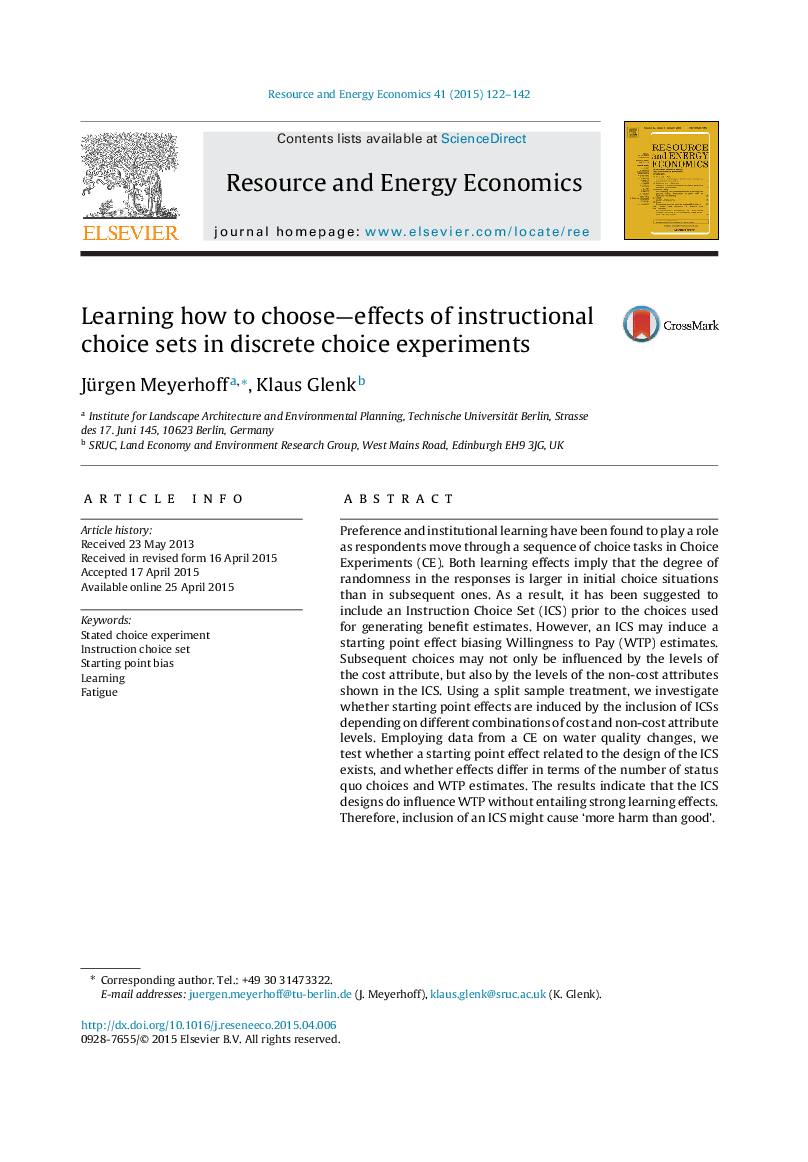| کد مقاله | کد نشریه | سال انتشار | مقاله انگلیسی | نسخه تمام متن |
|---|---|---|---|---|
| 985522 | 1480680 | 2015 | 21 صفحه PDF | دانلود رایگان |
• The effects of instruction choice sets (ICS) are investigated using split samples.
• On the ICS not only cost levels but also the levels of the quality improvements are varied systematically.
• Results indicate that ICS impact on WTP estimates but do not trigger learning effects.
• If used at all ICS should be designed in line with respondents’ common beliefs about attribute trade-offs.
Preference and institutional learning have been found to play a role as respondents move through a sequence of choice tasks in Choice Experiments (CE). Both learning effects imply that the degree of randomness in the responses is larger in initial choice situations than in subsequent ones. As a result, it has been suggested to include an Instruction Choice Set (ICS) prior to the choices used for generating benefit estimates. However, an ICS may induce a starting point effect biasing Willingness to Pay (WTP) estimates. Subsequent choices may not only be influenced by the levels of the cost attribute, but also by the levels of the non-cost attributes shown in the ICS. Using a split sample treatment, we investigate whether starting point effects are induced by the inclusion of ICSs depending on different combinations of cost and non-cost attribute levels. Employing data from a CE on water quality changes, we test whether a starting point effect related to the design of the ICS exists, and whether effects differ in terms of the number of status quo choices and WTP estimates. The results indicate that the ICS designs do influence WTP without entailing strong learning effects. Therefore, inclusion of an ICS might cause ‘more harm than good’. If, however, an ICS inclusion is nonetheless judged to be beneficial, we recommend to design them carefully in a way that is in line with respondents’ common beliefs regarding attribute trade-offs.
Journal: Resource and Energy Economics - Volume 41, August 2015, Pages 122–142
